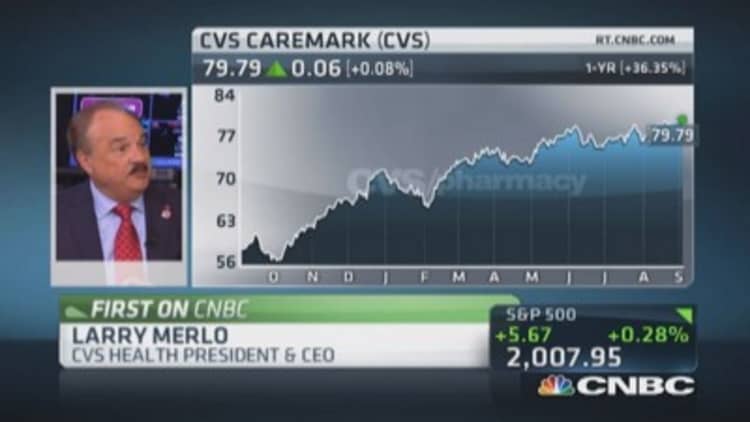Most Americans worry about being swamped by medical debt—and those debt fears aren't overblown, a new report finds.
One in four people say they now owe more in medical debt than they have saved in an emergency fund, according to the Bankrate.com report released Thursday. That problem is particularly acute for lower-income earners.
Among people who make less than $30,000 annually, 44 percent revealed that their medical debt exceeds their emergency savings fund, Bankrate.com found.
But even in higher-earning groups, of up to $75,000 annually, about one in four people say they're in that position, according to the Health Insurance Pulse survey, the first by Bankrate to ask about people's medical debt.
Read MoreMedicaid 'expanding' hospital profits
In contrast, just 6 percent of people who make more than $75,000 each year said their medical debt is more than what they have saved up for emergencies, according to Bankrate.com, which questioned 1,006 adults for the survey.
And a majority of all respondents—55 percent—reported that they are either "very" or "somewhat" worried about being overwhelmed by medical debt in the future.
"I don't find these results very surprising, sadly," said Doug Whiteman, Bankrate.com's insurance analyst.
"We recently found that about about a quarter of the population told us that they have no emergency savings," Whiteman said, referring to another report by the company in June. Bankrate suggests people save the equivalent of three to six months of living expenses in an emergency fund, which should be readily accessible, liquid assets such as cash.
However, Whiteman was struck by other findings in the new survey that showed that most people also are worried about not being able to afford health insurance in the future.
Fifty-five percent of respondents said they were either "very" or "somewhat" worried about their health plans becoming unaffordable in the future, according to the survey, which had an overall margin of error of plus or minus 3.6 percentage points.
Read MorePennsylvania's Medicaid plan may unravel
Whiteman said that level of worry "suggests a lack of awareness about the Affordable Care Act, which is something we've found in previous surveys."
The ACA, also known as Obamacare, set in motion the creation of health-care exchanges to sell insurance to people who either were uninsured or who were seeking an alternative to their existing private plans. The vast majority of the 8 million enrollees to date on the health-care marketplaces, such as HealthCare.gov, receive federally funded subsidies to offset the costs of their monthly premiums. As a result, many enrollees pay $100 or less each month in premiums.

But Whiteman said the widespread worry about insurance becoming too pricey in the future could also mean that people are "lacking confidence in the Affordable Care Act."
Either way, he noted, "more than half the population feels financially insecure when it comes to health care." And that could hurt consumer confidence, and the broader economy, he said.
"They might hold back on spending, and the economy needs spending to power it forward," he said.
Read MoreCVS stops tobacco sales early
Whiteman said that Bankrate.com will continue asking people about their medical debt as the company continues to track the impact of the ACA.
—By CNBC's Dan Mangan


